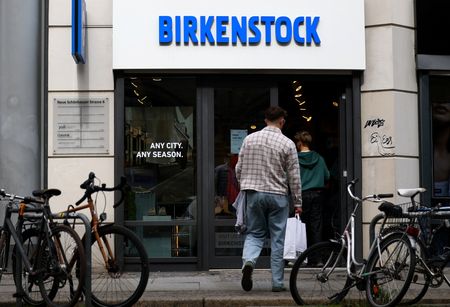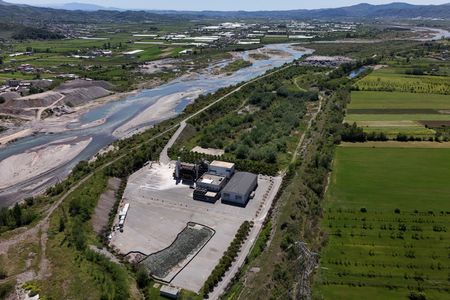By Riham Alkousaa
BERLIN (Reuters) -Germany is on track to meet its 2021-2030 climate goal but risks missing post-2030 targets, independent government advisers warned on Thursday, urging a clear long-term climate strategy for Europe’s largest economy.
Germany is likely to achieve its 2030 goal of cutting emissions by 65% from 1990 levels, thanks to exceptional events like the COVID-19 pandemic and an industrial slowdown, according to the Expert Council on Climate Issues.
“The total greenhouse gas emissions from 2021 to 2030 neither exceed nor fall short of the allowable amount under the Climate Protection Act,” the council said in a statement.
Beyond 2030, it projects Germany will miss climate targets as ecosystems like forests and wetlands shift from functioning as carbon sinks to become sources of emissions due to forest degradation, jeopardizing the country’s 2045 carbon neutrality goal.
A new German coalition government of conservatives and Social Democrats took office last week, prioritising economic revival and aiming to amend the previous government’s energy policy, which it views as overly focused on climate protection.
The council urged the government to focus on areas of the economy where emissions are not falling.
Sectors such as transport and construction did not meet their 2024 targets and performed worse than the year before, the council found.
Transforming these two sectors, which directly affect people’s lives through issues such as mobility or home heating, has been a challenge as Berlin struggles to balance climate protection and affordability.
“The coalition agreement does not explicitly address the key problem areas and remains vague in many places,” the council’s Deputy Chair Brigitte Knopf said.
It said a long-term strategy that would specify the interaction between residual emissions, natural and technical carbon sinks must be developed quickly.
(Reporting by Riham Alkousaa in Berlin; Editing by Nia Williams)











